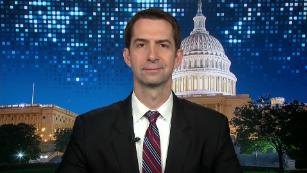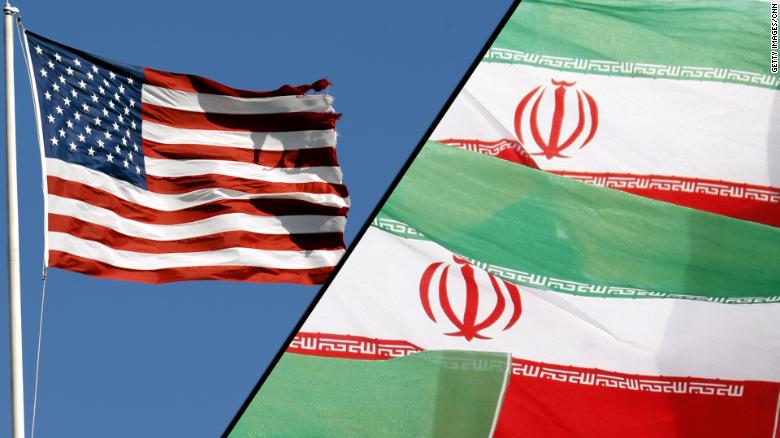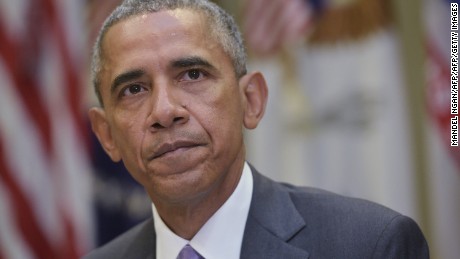http://www.sohu.com/a/314510718_414734
大国策
835文章 6.5亿总阅读
查看TA的文章>
191
原创 伊朗铤而走险,又撂狠话单挑两大军事强国!其中一个正是美国
2019-05-17 06:38
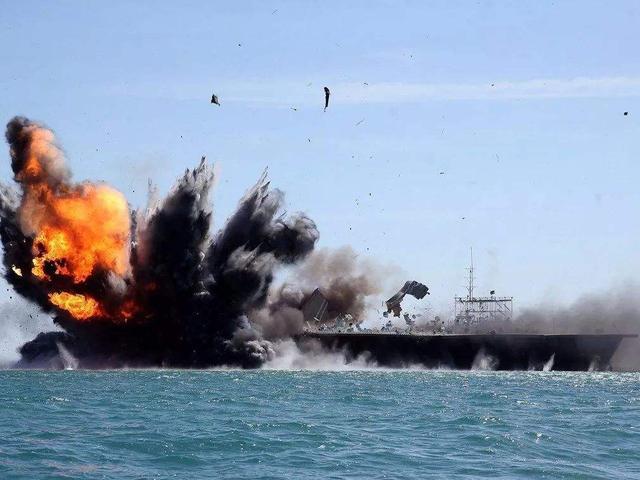
作者:阙兴明;图片来自网络
近期以来,美国向伊朗周边增派军力的动作依然在不停的进行之中,伊朗局势的紧张气氛正在不断加剧。在美国向伊朗极限施压之际,以色列也向伊朗露出了战争的獠牙。对此,已面临绝境的伊朗作出了要单挑美以两国的强硬表态
5月16日,环球网援引路透社报道称,伊朗国防部长阿米尔·哈塔米明确表示,“伊朗已经做好了最高水平的国防军事准备,可以应对任何类型的威胁与过分要求。我们将击败美国犹太复国主义阵线。”哈塔米在讲话中还强调称,我们将击败美国与以色列的军事联盟。
哈塔米的这一言论显然是同时针对美国与以色列两国的。其实本来也就如此,在向伊朗施压方面,美国从来就与以色列有着共同的诉求。众所周知,伊朗是中东地区什叶派国家的主心骨,是阻挠美国势力在中东推进的最大堡垒,美国要推翻伊朗现政权的想法并不是秘密。近期,美国派舰队进入波斯湾,其中甚至包括战斗力强大的“林肯”号航母战斗群;5月9日,美国一批B-52轰炸机也已在卡塔尔美军基地完成了部署。种种军事动作表明,美国正在对伊朗磨刀霍霍。
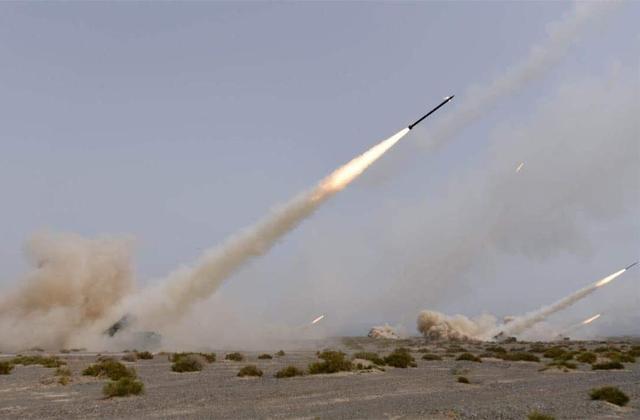
同时,伊朗跟以色列也是一对死敌,被犹太人视为最大的生存威胁。近年来伊朗伊斯兰革命卫队在叙利亚的军事存在就让以色列忧心忡忡,如去年5月初当特朗普正要撕毁伊朗核协议的前夕,以色列总理便“及时”的搜罗出来了大量伊朗违反核协议的所谓“证据”。并且在5月8日美国正式退出协议的当天,以色列便急不可耐的向伊朗驻叙利亚的20多个军事据点实施了轰炸,让伊朗地面部队遭到了重创。其实,以色列在叙利亚武装打击伊朗军事目标的行动一直都在延续之中。
尽管在美国最近向伊朗周边所作出军事部署的过程中,以色列并没有参与进来。但可想而知,以色列是不可能不做出对伊朗开战的准备的。这从以色列总理最近的表态便可以显见一二。5月14日,以总理内塔尼亚胡公开表示,以色列将与美国站在一起来对抗伊朗。并指出,“我们(美以两国)要团结一致来制止伊朗的侵略”。可见以色列的口吻跟美国完全一致,一边对伊朗实施几乎毫无退路可言的军事威胁,一边却反诬伊朗的所谓“侵略”。当然这也正显现出了以色列急欲对伊朗动武的野心。
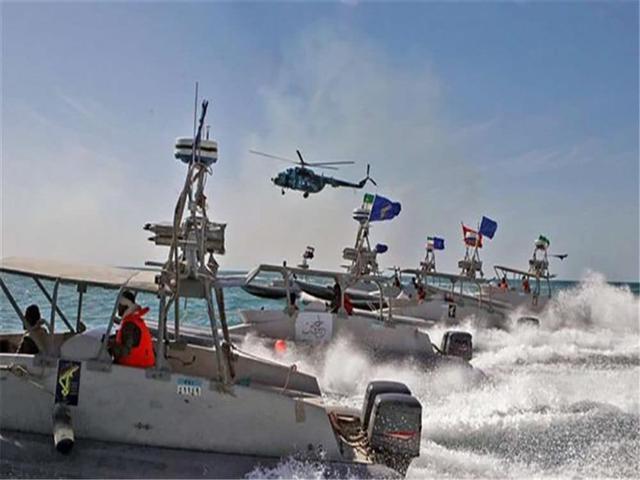
如今的伊朗已经处于了悬崖边上。一面要承受美国严厉到极致的经贸制裁,一面还要应对美国与以色列的军事威胁。并且美以两国还同为世界军事强国。在这一危急关头,其实除了哈塔米作出以上表态而外,伊朗伊斯兰革命卫队也同样语出铿锵。就在5月15日,该军队新上任不久的总司令萨拉米表态称,伊朗的敌人正在计划“打破伊朗人民坚定不移的信念”,我们目前正处于跟敌人的全面对抗的高峰期。
伊朗国防部作出强硬表态之后,作为该国主要国防力量的伊斯兰革命卫队便立即呼应。这毫无疑问是表明,在当前这一生死攸关之际,伊朗军方已经众志成城形成了牢不可破的统一阵营。在这一严峻的军事施压之下,伊朗反而被激发出来了敢于同时应对美以两大军事强国的强大决心。返回搜狐,查看更多
http://www.sohu.com/a/314515252_414734

大国策
835文章 6.5亿总阅读
查看TA的文章>
354
特朗普突然作出明确表态!到底打不打伊朗,这下有答案了
2019-05-17 07:15
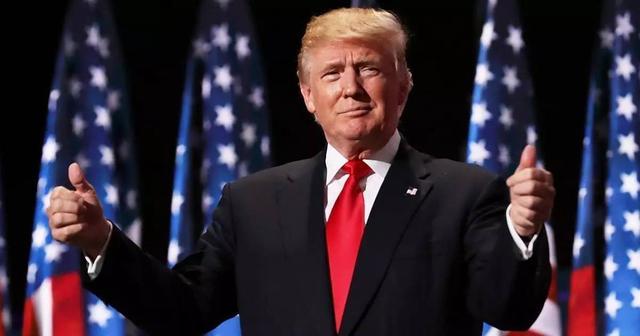
作者:阙兴明;图片来自网络
最近一段时间以来,美国几乎竭尽全力,拿出了所有手段对伊朗进行极限施压。这种施压既体现在经贸、金融方面,也在军事方面赤裸裸的表现了出来,作出了一系列危险的战争部署。总体来看,美国在伊朗周边营造出来的战争气氛已经非常浓烈了,似乎有一种战争就要一触即发的迹象。然而美国真的要对伊朗采取军事行动吗?就在当前这一危急时刻,特朗普刚刚作出了一个重磅表态。
5月17日,《纽约时报》报道称,美国总统特朗普于本周四在白宫的一场记者招待会上,当被记者问及“是否会与伊朗爆发战争?”时,他作出十分明确表态,称“他不希望美国与伊朗发生战争”。而值得一提的是,就在周三《纽约时报》还大量披露了美国最近向中东大搞军事部署的情报,并预计美伊之间即将发生战争。显而易见,特朗普的这一表态可说是一个极大的反转。
毫无疑问的是,这是在目前伊朗局势正在变得极度紧张之际,美国总统作出的一次极其重要的表态,让关注中东局势的整个国际社会松了一口气。不过最近美国的确对伊朗进行了极为严厉的施压。在经济上,比如从4月份以来便利用在其操纵下的国际货币支付体系对伊朗进行金融封锁,用第三方制裁的方式极力限制伊朗石油出口,加强对伊朗金属制品的制裁等,让伊朗经济陷入绝境。似乎是要尽力挤压伊朗应对战争的能力。
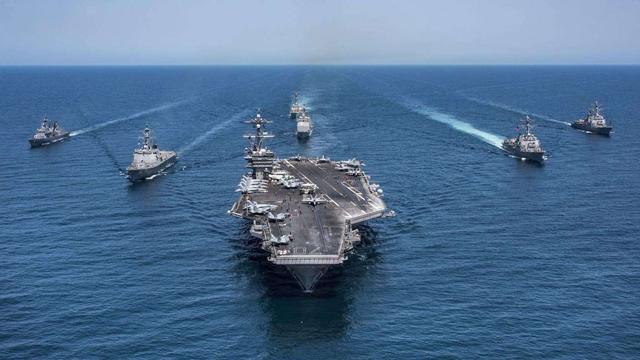
此外美国在军事方面对伊朗的施压也可说是空前严厉的。就在5月份,一个搭载有F-35B战机的两栖攻击舰编队已经在波斯湾进驻,最近美国又向该水域派出了“林肯”号航母战斗群;5月9日,美国B-52战略轰炸机群已部署在了卡塔尔的乌代德空军基地,而此前就已在该基地部署的一个F-35A战机中队。从这些军事部署情况来看,美国这一积聚在伊朗周边的海空军力量已经完全达到了足以发动一场战争的战备水平。
可有些耐人寻味的是,美国在作出这些紧张军事部署的同时,也似乎在尽力小心翼翼的避免战争的发生。如5月13日《纽约时报》披露,美国代理防长沙纳汉提出了一个向中东增派12万美军的军事计划。该报道再度掀起了美国或要对伊朗动武的热议,毕竟向中东派出地面部队更能意味着开战可能性的增大。然而特朗普却于15日劈头劈脸的将报道这一消息的《纽约时报》怒斥了一通,指出“这是假新闻”。
另外早在5月10日,特朗普也干出了一件看似十分微妙的行为。当天,特朗普发布了一则推文,内容是“我们的电话已经通过瑞士使馆发给伊朗领袖了,你们赶紧给我打电话吧!”很明显,这是在主动寻求与伊朗方面的何谈,希望美国与伊朗双方回到谈判桌上来。而此际正值风传美国“林肯”号航母战斗群及B-52轰炸机群要向中东部署的紧急关头。这种一边以武力施压,一边又释放出和谈信号的行为,无疑显露出了美国只是在“以武促谈”的一贯伎俩。
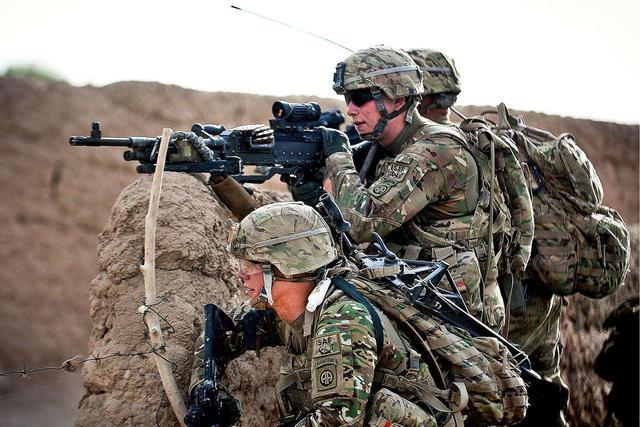
特朗普之所以在军事施压的同时又不时露出避战的表现,此次更是明确声明“不希望与伊朗发生战争”,是跟美国目前的现状有关。众所周知,美国新世纪以来已经先后在阿富汗与伊拉克发动了两场战争,而这两场战争至今还在成为美国两大沉重的包袱,可伊朗的综合实力又并不比以上两国弱。因此美国若向伊朗开战,很可能将自己拖垮,从而加速自己全球霸权的萎缩。5月15日有伊朗高级官员也指出了这一关键点,称“德黑兰已经准备好应对'从对抗到外交'的所有情况,但美国无法在中东再打一场仗了。”
之所以特朗普此次要作出这种表态,除了美国自身的因素而外,还与伊朗方面越压越强的强硬态度有关。5月15日,伊朗军方作出密集表态。先是伊朗国防部长哈塔米指出,德黑兰已经做好了最高水平的战争准备,可以应付“任何类型的威胁与过分要求”。同时伊朗伊斯兰革命卫队总司令萨拉米也表示,我们正处于跟敌人全面对抗的高峰期,我们完全能挫败伊朗敌人的计划。
通过美国一面施压一面又寻求和谈的表现来看,这完全是像特朗普在他的“著作”——《交易的艺术》里面喋喋不休的向人们告诫的那样,要以“极限施压”来让对手让步。如今在美国不能承受大规模战争的现状以及伊朗的强硬态度的情况下,压力反而回到了美国一方,也让美国“纸老虎”的真面目再次暴露了出来。难怪要让特朗普表态称“不希望与伊朗发生战争”了。返回搜狐,查看更多
声明:该文观点仅代表作者本人,搜狐号系信息发布平台,搜狐仅提供信息存储空间服务。
35b 沙纳汉 哈塔米 萨拉米 交易的艺术
Http://www.sohu.com/a/314510718_414734
Great country policy
835 articles 6.5 billion total reading
View TA's article >
191
share to
Original Iran is taking risks and is arguing for two military powers! One of them is the United States
2019-05-17 06:38
Author: Quexing Ming; images from the network
Recently, the US’s move to send more troops to Iran is still going on, and the tension in the Iranian situation is growing. At the time when the United States put pressure on the Iranian limit, Israel also revealed the ravages of war to Iran. In this regard, Iran, which has already faced a desperate situation, has made a tough stance to single out the United States and Israel.
On May 16, the World Wide Web quoted Reuters as saying that Iranian Defense Minister Amir Khatami made it clear that "Iran has prepared the highest level of defense and military preparations to deal with any type of threat and excessive demand. We will Defeat the American Zionist Front." Khatami also stressed in his speech that we will defeat the military alliance between the United States and Israel.
Khatami’s remarks are clearly aimed at both the United States and Israel. In fact, this is also the case. In terms of pressure on Iran, the United States has always had a common aspiration with Israel. As everyone knows, Iran is the backbone of the Shiite countries in the Middle East and the biggest bastion that hinders the advancement of American power in the Middle East. It is no secret that the United States wants to overthrow the current regime in Iran. Recently, the United States sent a fleet into the Persian Gulf, which even included the powerful "Lincoln" aircraft carrier battle group; on May 9, a group of US B-52 bombers were also deployed at the US military base in Qatar. Various military actions indicate that the United States is sharpening the knife against Iran.
At the same time, Iran and Israel are also a pair of deadly enemies, regarded by Jews as the greatest threat to survival. In recent years, the Iranian Islamic Revolutionary Guard’s military presence in Syria has worried Israel. As early as the beginning of May when Trump was about to tear up the Iranian nuclear agreement, the Israeli Prime Minister’s “in time” collected a large number of Iran’s alleged violations of the nuclear agreement. "evidence". On the day of the official withdrawal of the US agreement on May 8, Israel was eager to bomb the Iranian military presence in Syria, causing heavy damage to Iranian ground forces. In fact, Israel’s actions to arm Iran’s military targets in Syria have continued.
Despite the recent military deployment of the United States to Iran, Israel did not participate. But it is conceivable that it is impossible for Israel to prepare for the war against Iran. This can be seen from the recent statement by the Israeli Prime Minister. On May 14, Prime Minister Netanyahu publicly stated that Israel will stand with the United States to fight against Iran. He also pointed out that "we (the United States and Israel) must unite to stop Iran's aggression." It can be seen that Israel’s tone is exactly the same as that of the United States. While carrying out a military threat to Iran with almost no retreat, it has opposed Iran’s so-called "aggression." Of course, this is also showing Israel’s eagerness to use force against Iran.
Today's Iran is already on the edge of the cliff. On the one hand, it must withstand the harsh economic and economic sanctions imposed by the United States, and it must also deal with the military threats between the United States and Israel. And the United States and Israel are also the world's military powers. At this critical juncture, in fact, in addition to Khatami made the above statement, the Iranian Islamic Revolutionary Guard Corps also said the same thing. On May 15, the new commander-in-chief of the army, Salami, stated that Iran’s enemies are planning to “break the unwavering conviction of the Iranian people.” We are currently at the peak of the overall confrontation with the enemy.
After the Iranian Defense Ministry made a tough stance, the Islamic Revolutionary Guard Corps, the country’s main defense force, immediately responded. This undoubtedly shows that at the moment of this life and death, the Iranian military has formed an unbreakable unity camp. Under this severe military pressure, Iran has been provoked to have a strong determination to cope with the two major military powers. Go back to Sohu and see more
Http://www.sohu.com/a/314515252_414734
Great country policy
835 articles 6.5 billion total reading
View TA's article >
354
share to
Trump suddenly made a clear statement! In the end, I won’t fight Iran. There is an answer.
2019-05-17 07:15
Author: Quexing Ming; images from the network
In the recent past, the United States has almost done its utmost to put all the means to impose extreme pressure on Iran. This kind of pressure is reflected not only in the economic and trade, financial aspects, but also in the military, and has made a series of dangerous war deployments. On the whole, the atmosphere of war created by the United States around Iran is already very strong. There seems to be a sign that war will be triggered. But does the United States really want to take military action against Iran? At this critical moment, Trump has just made a heavy statement.
On May 17, the New York Times reported that US President Trump was asked by a reporter at a press conference at the White House this Thursday, "Will it be a war with Iran?" Expressly stated that "he does not want the United States to have a war with Iran." It is worth mentioning that on Wednesday, the New York Times also disclosed a large amount of information about the US military deployment to the Middle East recently, and expected an upcoming war between the United States and Iraq. Obviously, Trump's statement can be said to be a great reversal.
Undoubtedly, this is an extremely important statement made by the President of the United States at a time when the situation in Iran is becoming extremely tense, and the entire international community concerned about the situation in the Middle East is relieved. However, the United States has indeed imposed extremely severe pressure on Iran. In the economy, for example, since April, the international currency payment system under its control has been used to block the financial blockade of Iran, and third-party sanctions have been used to restrict Iran’s oil exports and strengthen sanctions against Iran’s metal products. Fall into desperation. It seems that it is trying to squeeze Iran’s ability to deal with war.
In addition, the US’s military pressure on Iran can be said to be unprecedentedly severe. Just in May, an amphibious assault ship formation equipped with F-35B fighters has been stationed in the Persian Gulf. Recently, the United States sent the "Lincoln" aircraft carrier battle group to the waters; on May 9, the US B-52 strategic bomber The group has been deployed at Uday Air Force Base in Qatar, and an F-35A fighter squadron has been deployed at the base. Judging from these military deployments, the US air and sea forces that have accumulated around Iran have fully reached the level of readiness to launch a war.
What is intriguing is that while the United States is making these intense military deployments, it seems that it is trying to avoid the war. As disclosed in the New York Times on May 13, the US Acting Defense Minister Shanahan proposed a military plan to send an additional 120,000 US troops to the Middle East. The report once again set off a hot debate on the United States or the use of force against Iran. After all, sending ground troops to the Middle East is more likely to mean an increase in the possibility of war. However, on the 15th, Trump screamed at the New York Times, which reported the news, and pointed out that "this is fake news."
In addition, as early as May 10, Trump also did a seemingly subtle behavior. On the same day, Trump issued a tweet saying, "Our phone has been sent to the Iranian leader through the Swiss Embassy. Please call me quickly!" Obviously, this is the initiative to seek for Iran. I hope that the United States and Iran will return to the negotiating table. At this time, it is at a critical juncture that the US "Lincoln" aircraft carrier battle group and the B-52 bomber group will be deployed to the Middle East. This kind of act of exerting pressure by force and releasing the signal of peace talks undoubtedly reveals that the United States has always been consistent in its tactics of "promoting talks by force."
Trump’s military pressure also revealed the performance of avoiding war from time to time. This time, he clearly stated that “I don’t want to have a war with Iran”, which is related to the current status of the United States. As is known to all, the United States has launched two wars in Afghanistan and Iraq since the new century. These two wars are still becoming two heavy burdens for the United States, but Iran’s comprehensive strength is no weaker than the two countries. Therefore, if the United States fights against Iran, it is likely to drag itself down, thus accelerating the shrinking of its global hegemony. On May 15th, senior Iranian officials also pointed out this key point, saying that "Tehran is ready to deal with all the situations from 'confrontation to diplomacy', but the United States cannot fight another battle in the Middle East."
The reason why Trump wants to make this statement, in addition to the US's own factors, is related to the tougher attitude of the Iranian side. On May 15, the Iranian military made a dense statement. First, Iranian Defense Minister Khatami pointed out that Tehran has prepared for the highest level of war and can cope with "any type of threat and excessive demand." At the same time, the commander-in-chief of the Iranian Islamic Revolutionary Guards, Salami, also said that we are at the peak of the full confrontation with the enemy, and we can completely defeat the plan of the Iranian enemy.
Through the pressure of the United States to pressure and seek peace talks, this is exactly what Trump told him in his "writing" - "The Art of Trading", to "extreme pressure". Let the opponent give in. Now that the United States cannot withstand the current situation of large-scale wars and Iran’s tough attitude, the pressure has returned to the United States, and the true face of the American "paper tiger" has once again been exposed. It is no wonder that Trump stated that he "does not want to have a war with Iran." Go back to Sohu and see more
Disclaimer: This article only represents the author himself, Sohu is the information publishing platform, and Sohu only provides information storage space services.
35b Shanahan Hatami Salami The art of trading
大国策
835文章 6.5亿总阅读
查看TA的文章>
191
- 分享到
原创 伊朗铤而走险,又撂狠话单挑两大军事强国!其中一个正是美国
2019-05-17 06:38

作者:阙兴明;图片来自网络
近期以来,美国向伊朗周边增派军力的动作依然在不停的进行之中,伊朗局势的紧张气氛正在不断加剧。在美国向伊朗极限施压之际,以色列也向伊朗露出了战争的獠牙。对此,已面临绝境的伊朗作出了要单挑美以两国的强硬表态
5月16日,环球网援引路透社报道称,伊朗国防部长阿米尔·哈塔米明确表示,“伊朗已经做好了最高水平的国防军事准备,可以应对任何类型的威胁与过分要求。我们将击败美国犹太复国主义阵线。”哈塔米在讲话中还强调称,我们将击败美国与以色列的军事联盟。
哈塔米的这一言论显然是同时针对美国与以色列两国的。其实本来也就如此,在向伊朗施压方面,美国从来就与以色列有着共同的诉求。众所周知,伊朗是中东地区什叶派国家的主心骨,是阻挠美国势力在中东推进的最大堡垒,美国要推翻伊朗现政权的想法并不是秘密。近期,美国派舰队进入波斯湾,其中甚至包括战斗力强大的“林肯”号航母战斗群;5月9日,美国一批B-52轰炸机也已在卡塔尔美军基地完成了部署。种种军事动作表明,美国正在对伊朗磨刀霍霍。

同时,伊朗跟以色列也是一对死敌,被犹太人视为最大的生存威胁。近年来伊朗伊斯兰革命卫队在叙利亚的军事存在就让以色列忧心忡忡,如去年5月初当特朗普正要撕毁伊朗核协议的前夕,以色列总理便“及时”的搜罗出来了大量伊朗违反核协议的所谓“证据”。并且在5月8日美国正式退出协议的当天,以色列便急不可耐的向伊朗驻叙利亚的20多个军事据点实施了轰炸,让伊朗地面部队遭到了重创。其实,以色列在叙利亚武装打击伊朗军事目标的行动一直都在延续之中。
尽管在美国最近向伊朗周边所作出军事部署的过程中,以色列并没有参与进来。但可想而知,以色列是不可能不做出对伊朗开战的准备的。这从以色列总理最近的表态便可以显见一二。5月14日,以总理内塔尼亚胡公开表示,以色列将与美国站在一起来对抗伊朗。并指出,“我们(美以两国)要团结一致来制止伊朗的侵略”。可见以色列的口吻跟美国完全一致,一边对伊朗实施几乎毫无退路可言的军事威胁,一边却反诬伊朗的所谓“侵略”。当然这也正显现出了以色列急欲对伊朗动武的野心。

如今的伊朗已经处于了悬崖边上。一面要承受美国严厉到极致的经贸制裁,一面还要应对美国与以色列的军事威胁。并且美以两国还同为世界军事强国。在这一危急关头,其实除了哈塔米作出以上表态而外,伊朗伊斯兰革命卫队也同样语出铿锵。就在5月15日,该军队新上任不久的总司令萨拉米表态称,伊朗的敌人正在计划“打破伊朗人民坚定不移的信念”,我们目前正处于跟敌人的全面对抗的高峰期。
伊朗国防部作出强硬表态之后,作为该国主要国防力量的伊斯兰革命卫队便立即呼应。这毫无疑问是表明,在当前这一生死攸关之际,伊朗军方已经众志成城形成了牢不可破的统一阵营。在这一严峻的军事施压之下,伊朗反而被激发出来了敢于同时应对美以两大军事强国的强大决心。返回搜狐,查看更多
http://www.sohu.com/a/314515252_414734
大国策
835文章 6.5亿总阅读
查看TA的文章>
354
- 分享到
特朗普突然作出明确表态!到底打不打伊朗,这下有答案了
2019-05-17 07:15

作者:阙兴明;图片来自网络
最近一段时间以来,美国几乎竭尽全力,拿出了所有手段对伊朗进行极限施压。这种施压既体现在经贸、金融方面,也在军事方面赤裸裸的表现了出来,作出了一系列危险的战争部署。总体来看,美国在伊朗周边营造出来的战争气氛已经非常浓烈了,似乎有一种战争就要一触即发的迹象。然而美国真的要对伊朗采取军事行动吗?就在当前这一危急时刻,特朗普刚刚作出了一个重磅表态。
5月17日,《纽约时报》报道称,美国总统特朗普于本周四在白宫的一场记者招待会上,当被记者问及“是否会与伊朗爆发战争?”时,他作出十分明确表态,称“他不希望美国与伊朗发生战争”。而值得一提的是,就在周三《纽约时报》还大量披露了美国最近向中东大搞军事部署的情报,并预计美伊之间即将发生战争。显而易见,特朗普的这一表态可说是一个极大的反转。
毫无疑问的是,这是在目前伊朗局势正在变得极度紧张之际,美国总统作出的一次极其重要的表态,让关注中东局势的整个国际社会松了一口气。不过最近美国的确对伊朗进行了极为严厉的施压。在经济上,比如从4月份以来便利用在其操纵下的国际货币支付体系对伊朗进行金融封锁,用第三方制裁的方式极力限制伊朗石油出口,加强对伊朗金属制品的制裁等,让伊朗经济陷入绝境。似乎是要尽力挤压伊朗应对战争的能力。

此外美国在军事方面对伊朗的施压也可说是空前严厉的。就在5月份,一个搭载有F-35B战机的两栖攻击舰编队已经在波斯湾进驻,最近美国又向该水域派出了“林肯”号航母战斗群;5月9日,美国B-52战略轰炸机群已部署在了卡塔尔的乌代德空军基地,而此前就已在该基地部署的一个F-35A战机中队。从这些军事部署情况来看,美国这一积聚在伊朗周边的海空军力量已经完全达到了足以发动一场战争的战备水平。
可有些耐人寻味的是,美国在作出这些紧张军事部署的同时,也似乎在尽力小心翼翼的避免战争的发生。如5月13日《纽约时报》披露,美国代理防长沙纳汉提出了一个向中东增派12万美军的军事计划。该报道再度掀起了美国或要对伊朗动武的热议,毕竟向中东派出地面部队更能意味着开战可能性的增大。然而特朗普却于15日劈头劈脸的将报道这一消息的《纽约时报》怒斥了一通,指出“这是假新闻”。
另外早在5月10日,特朗普也干出了一件看似十分微妙的行为。当天,特朗普发布了一则推文,内容是“我们的电话已经通过瑞士使馆发给伊朗领袖了,你们赶紧给我打电话吧!”很明显,这是在主动寻求与伊朗方面的何谈,希望美国与伊朗双方回到谈判桌上来。而此际正值风传美国“林肯”号航母战斗群及B-52轰炸机群要向中东部署的紧急关头。这种一边以武力施压,一边又释放出和谈信号的行为,无疑显露出了美国只是在“以武促谈”的一贯伎俩。

特朗普之所以在军事施压的同时又不时露出避战的表现,此次更是明确声明“不希望与伊朗发生战争”,是跟美国目前的现状有关。众所周知,美国新世纪以来已经先后在阿富汗与伊拉克发动了两场战争,而这两场战争至今还在成为美国两大沉重的包袱,可伊朗的综合实力又并不比以上两国弱。因此美国若向伊朗开战,很可能将自己拖垮,从而加速自己全球霸权的萎缩。5月15日有伊朗高级官员也指出了这一关键点,称“德黑兰已经准备好应对'从对抗到外交'的所有情况,但美国无法在中东再打一场仗了。”
之所以特朗普此次要作出这种表态,除了美国自身的因素而外,还与伊朗方面越压越强的强硬态度有关。5月15日,伊朗军方作出密集表态。先是伊朗国防部长哈塔米指出,德黑兰已经做好了最高水平的战争准备,可以应付“任何类型的威胁与过分要求”。同时伊朗伊斯兰革命卫队总司令萨拉米也表示,我们正处于跟敌人全面对抗的高峰期,我们完全能挫败伊朗敌人的计划。
通过美国一面施压一面又寻求和谈的表现来看,这完全是像特朗普在他的“著作”——《交易的艺术》里面喋喋不休的向人们告诫的那样,要以“极限施压”来让对手让步。如今在美国不能承受大规模战争的现状以及伊朗的强硬态度的情况下,压力反而回到了美国一方,也让美国“纸老虎”的真面目再次暴露了出来。难怪要让特朗普表态称“不希望与伊朗发生战争”了。返回搜狐,查看更多
声明:该文观点仅代表作者本人,搜狐号系信息发布平台,搜狐仅提供信息存储空间服务。
35b 沙纳汉 哈塔米 萨拉米 交易的艺术
Http://www.sohu.com/a/314510718_414734
Great country policy
835 articles 6.5 billion total reading
View TA's article >
191
share to
Original Iran is taking risks and is arguing for two military powers! One of them is the United States
2019-05-17 06:38
Author: Quexing Ming; images from the network
Recently, the US’s move to send more troops to Iran is still going on, and the tension in the Iranian situation is growing. At the time when the United States put pressure on the Iranian limit, Israel also revealed the ravages of war to Iran. In this regard, Iran, which has already faced a desperate situation, has made a tough stance to single out the United States and Israel.
On May 16, the World Wide Web quoted Reuters as saying that Iranian Defense Minister Amir Khatami made it clear that "Iran has prepared the highest level of defense and military preparations to deal with any type of threat and excessive demand. We will Defeat the American Zionist Front." Khatami also stressed in his speech that we will defeat the military alliance between the United States and Israel.
Khatami’s remarks are clearly aimed at both the United States and Israel. In fact, this is also the case. In terms of pressure on Iran, the United States has always had a common aspiration with Israel. As everyone knows, Iran is the backbone of the Shiite countries in the Middle East and the biggest bastion that hinders the advancement of American power in the Middle East. It is no secret that the United States wants to overthrow the current regime in Iran. Recently, the United States sent a fleet into the Persian Gulf, which even included the powerful "Lincoln" aircraft carrier battle group; on May 9, a group of US B-52 bombers were also deployed at the US military base in Qatar. Various military actions indicate that the United States is sharpening the knife against Iran.
At the same time, Iran and Israel are also a pair of deadly enemies, regarded by Jews as the greatest threat to survival. In recent years, the Iranian Islamic Revolutionary Guard’s military presence in Syria has worried Israel. As early as the beginning of May when Trump was about to tear up the Iranian nuclear agreement, the Israeli Prime Minister’s “in time” collected a large number of Iran’s alleged violations of the nuclear agreement. "evidence". On the day of the official withdrawal of the US agreement on May 8, Israel was eager to bomb the Iranian military presence in Syria, causing heavy damage to Iranian ground forces. In fact, Israel’s actions to arm Iran’s military targets in Syria have continued.
Despite the recent military deployment of the United States to Iran, Israel did not participate. But it is conceivable that it is impossible for Israel to prepare for the war against Iran. This can be seen from the recent statement by the Israeli Prime Minister. On May 14, Prime Minister Netanyahu publicly stated that Israel will stand with the United States to fight against Iran. He also pointed out that "we (the United States and Israel) must unite to stop Iran's aggression." It can be seen that Israel’s tone is exactly the same as that of the United States. While carrying out a military threat to Iran with almost no retreat, it has opposed Iran’s so-called "aggression." Of course, this is also showing Israel’s eagerness to use force against Iran.
Today's Iran is already on the edge of the cliff. On the one hand, it must withstand the harsh economic and economic sanctions imposed by the United States, and it must also deal with the military threats between the United States and Israel. And the United States and Israel are also the world's military powers. At this critical juncture, in fact, in addition to Khatami made the above statement, the Iranian Islamic Revolutionary Guard Corps also said the same thing. On May 15, the new commander-in-chief of the army, Salami, stated that Iran’s enemies are planning to “break the unwavering conviction of the Iranian people.” We are currently at the peak of the overall confrontation with the enemy.
After the Iranian Defense Ministry made a tough stance, the Islamic Revolutionary Guard Corps, the country’s main defense force, immediately responded. This undoubtedly shows that at the moment of this life and death, the Iranian military has formed an unbreakable unity camp. Under this severe military pressure, Iran has been provoked to have a strong determination to cope with the two major military powers. Go back to Sohu and see more
Http://www.sohu.com/a/314515252_414734
Great country policy
835 articles 6.5 billion total reading
View TA's article >
354
share to
Trump suddenly made a clear statement! In the end, I won’t fight Iran. There is an answer.
2019-05-17 07:15
Author: Quexing Ming; images from the network
In the recent past, the United States has almost done its utmost to put all the means to impose extreme pressure on Iran. This kind of pressure is reflected not only in the economic and trade, financial aspects, but also in the military, and has made a series of dangerous war deployments. On the whole, the atmosphere of war created by the United States around Iran is already very strong. There seems to be a sign that war will be triggered. But does the United States really want to take military action against Iran? At this critical moment, Trump has just made a heavy statement.
On May 17, the New York Times reported that US President Trump was asked by a reporter at a press conference at the White House this Thursday, "Will it be a war with Iran?" Expressly stated that "he does not want the United States to have a war with Iran." It is worth mentioning that on Wednesday, the New York Times also disclosed a large amount of information about the US military deployment to the Middle East recently, and expected an upcoming war between the United States and Iraq. Obviously, Trump's statement can be said to be a great reversal.
Undoubtedly, this is an extremely important statement made by the President of the United States at a time when the situation in Iran is becoming extremely tense, and the entire international community concerned about the situation in the Middle East is relieved. However, the United States has indeed imposed extremely severe pressure on Iran. In the economy, for example, since April, the international currency payment system under its control has been used to block the financial blockade of Iran, and third-party sanctions have been used to restrict Iran’s oil exports and strengthen sanctions against Iran’s metal products. Fall into desperation. It seems that it is trying to squeeze Iran’s ability to deal with war.
In addition, the US’s military pressure on Iran can be said to be unprecedentedly severe. Just in May, an amphibious assault ship formation equipped with F-35B fighters has been stationed in the Persian Gulf. Recently, the United States sent the "Lincoln" aircraft carrier battle group to the waters; on May 9, the US B-52 strategic bomber The group has been deployed at Uday Air Force Base in Qatar, and an F-35A fighter squadron has been deployed at the base. Judging from these military deployments, the US air and sea forces that have accumulated around Iran have fully reached the level of readiness to launch a war.
What is intriguing is that while the United States is making these intense military deployments, it seems that it is trying to avoid the war. As disclosed in the New York Times on May 13, the US Acting Defense Minister Shanahan proposed a military plan to send an additional 120,000 US troops to the Middle East. The report once again set off a hot debate on the United States or the use of force against Iran. After all, sending ground troops to the Middle East is more likely to mean an increase in the possibility of war. However, on the 15th, Trump screamed at the New York Times, which reported the news, and pointed out that "this is fake news."
In addition, as early as May 10, Trump also did a seemingly subtle behavior. On the same day, Trump issued a tweet saying, "Our phone has been sent to the Iranian leader through the Swiss Embassy. Please call me quickly!" Obviously, this is the initiative to seek for Iran. I hope that the United States and Iran will return to the negotiating table. At this time, it is at a critical juncture that the US "Lincoln" aircraft carrier battle group and the B-52 bomber group will be deployed to the Middle East. This kind of act of exerting pressure by force and releasing the signal of peace talks undoubtedly reveals that the United States has always been consistent in its tactics of "promoting talks by force."
Trump’s military pressure also revealed the performance of avoiding war from time to time. This time, he clearly stated that “I don’t want to have a war with Iran”, which is related to the current status of the United States. As is known to all, the United States has launched two wars in Afghanistan and Iraq since the new century. These two wars are still becoming two heavy burdens for the United States, but Iran’s comprehensive strength is no weaker than the two countries. Therefore, if the United States fights against Iran, it is likely to drag itself down, thus accelerating the shrinking of its global hegemony. On May 15th, senior Iranian officials also pointed out this key point, saying that "Tehran is ready to deal with all the situations from 'confrontation to diplomacy', but the United States cannot fight another battle in the Middle East."
The reason why Trump wants to make this statement, in addition to the US's own factors, is related to the tougher attitude of the Iranian side. On May 15, the Iranian military made a dense statement. First, Iranian Defense Minister Khatami pointed out that Tehran has prepared for the highest level of war and can cope with "any type of threat and excessive demand." At the same time, the commander-in-chief of the Iranian Islamic Revolutionary Guards, Salami, also said that we are at the peak of the full confrontation with the enemy, and we can completely defeat the plan of the Iranian enemy.
Through the pressure of the United States to pressure and seek peace talks, this is exactly what Trump told him in his "writing" - "The Art of Trading", to "extreme pressure". Let the opponent give in. Now that the United States cannot withstand the current situation of large-scale wars and Iran’s tough attitude, the pressure has returned to the United States, and the true face of the American "paper tiger" has once again been exposed. It is no wonder that Trump stated that he "does not want to have a war with Iran." Go back to Sohu and see more
Disclaimer: This article only represents the author himself, Sohu is the information publishing platform, and Sohu only provides information storage space services.
35b Shanahan Hatami Salami The art of trading




